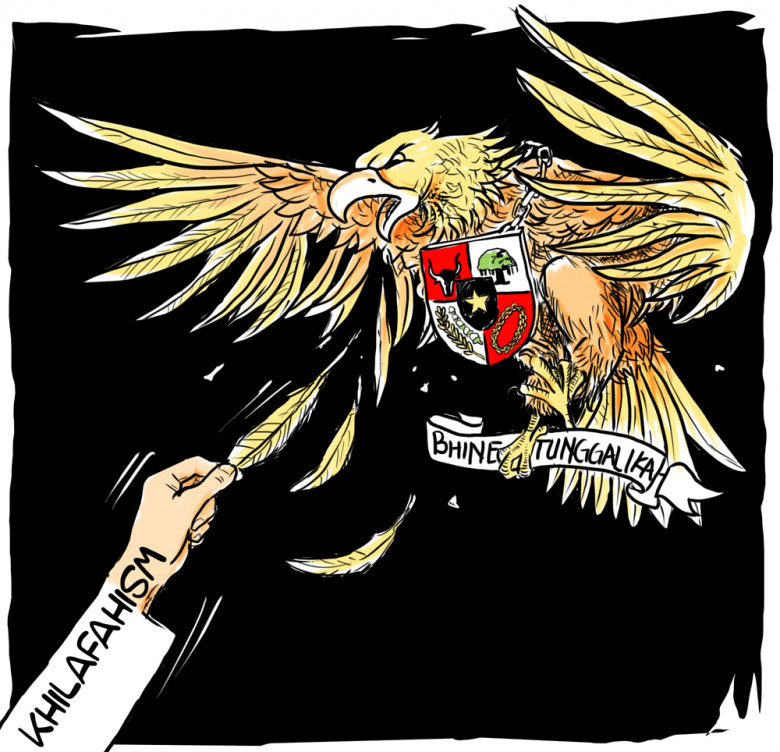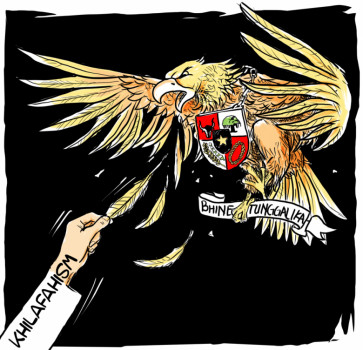Popular Reads
Top Results
Can't find what you're looking for?
View all search resultsPopular Reads
Top Results
Can't find what you're looking for?
View all search resultsPancasila, democracy vs ‘khilafah’: Challenge for Indonesia
Khilafahism is more complex than just an ideology like communism. It is a “faithological” phenomenon as it combines rational reasons and religious belief. To build radical fervor they created the strong slogan “Kafir [infidel], no! Islam, yes!!” to encourage followers.
Change text size
Gift Premium Articles
to Anyone
O
n the morning of July 18, a Yogyakarta radio station broadcast a long lecture on the urgency of an Islamic caliphate. The speaker said democracy was not in line with Allah’s way, but rather the product of Western politics that marginalized Islam and restricted Muslims’ role in politics.
Political parties, as a product of democracy, have split Muslims and pitted them against each other, so they are dubbed assobiyah zalim (cruel primordial groups). At the end of the lecture, the speaker said: “Seize the power, go into politics in the name of Islam and establish khilafah [Islamic State]!”
More or less around that day, the 212 Alumni Association leaders stated that khilafah Islamiyah must be upright in 2024. Then, they denounced their losing presidential candidate Prabowo Subianto as a traitor for agreeing to reconcile with Joko “Jokowi” Widodo, the reelected president. This boldness seems related to their feeling of success in gaining more than 68.65 million or 44.50 percent of the vote in the 2019 presidential race.
In the 1980s, the procaliphate movement promoted its aspiration through tarbiyah (education) as a moderation strategy to gain popular support, considering the fact that the New Order was tough against radical political Islam. At the same time, Nahdlatul Ulama (NU) engaged with vertical mobility through state politics, while Muhammadiyah focused on education. The public spaces in rural and urban areas left vacant by the two mainstream Islamic organizations were filled by prokhilafah groups.
Within five years, they recruited cadres who were fresh university graduates. They then worked as teachers, lecturer assistants or research assistants in state institutions. Three to five years later, they obtained master and doctorate degrees, and secured important positions in the state apparatus with all the influential consequences.
Their preachers started to control mosques in kampungs and housing complexes in major cities. The Muslim-only property business, meanwhile, has bloomed since late 1990s.
Procaliphate thoughts occupy the public mind in a systematic way. They have been disseminated through various strategies that enable them to develop across social strata, ethnicities and cultures.


















